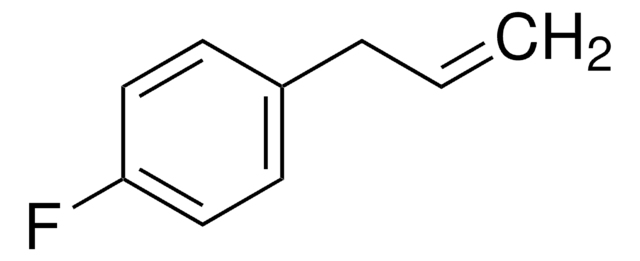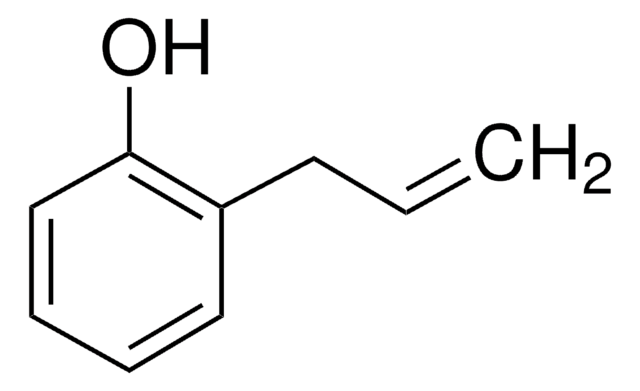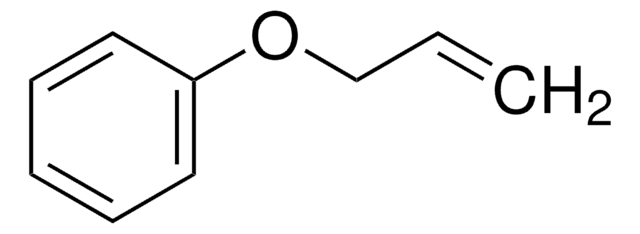A29208
4-Allylanisole
98%
Sinónimos:
p-Allylphenyl methyl ether, p-Methoxyallylbenzene, Chavicol methyl ether, Estragole, Isoanethole, Methyl chavicol
About This Item
Productos recomendados
Quality Level
assay
98%
form
liquid
refractive index
n20/D 1.521 (lit.)
bp
215-216 °C (lit.)
density
0.965 g/mL at 25 °C (lit.)
SMILES string
COc1ccc(CC=C)cc1
InChI
1S/C10H12O/c1-3-4-9-5-7-10(11-2)8-6-9/h3,5-8H,1,4H2,2H3
InChI key
ZFMSMUAANRJZFM-UHFFFAOYSA-N
¿Está buscando productos similares? Visita Guía de comparación de productos
signalword
Warning
Hazard Classifications
Acute Tox. 4 Oral - Aquatic Chronic 3 - Carc. 2 - Eye Irrit. 2 - Muta. 2 - Skin Irrit. 2 - Skin Sens. 1
Storage Class
10 - Combustible liquids
wgk_germany
WGK 2
flash_point_f
177.8 °F - closed cup
flash_point_c
81 °C - closed cup
ppe
Eyeshields, Faceshields, Gloves, type ABEK (EN14387) respirator filter
Elija entre una de las versiones más recientes:
¿Ya tiene este producto?
Encuentre la documentación para los productos que ha comprado recientemente en la Biblioteca de documentos.
Los clientes también vieron
Nuestro equipo de científicos tiene experiencia en todas las áreas de investigación: Ciencias de la vida, Ciencia de los materiales, Síntesis química, Cromatografía, Analítica y muchas otras.
Póngase en contacto con el Servicio técnico






![[1,3-Bis(2,4,6-trimethylphenyl)-2-imidazolidinylidene]dichloro(benzylidene)bis(3-bromopyridine)ruthenium(II)](/deepweb/assets/sigmaaldrich/product/structures/261/898/e64eea4e-5a09-4c7d-b400-c43b3517de2a/640/e64eea4e-5a09-4c7d-b400-c43b3517de2a.png)



